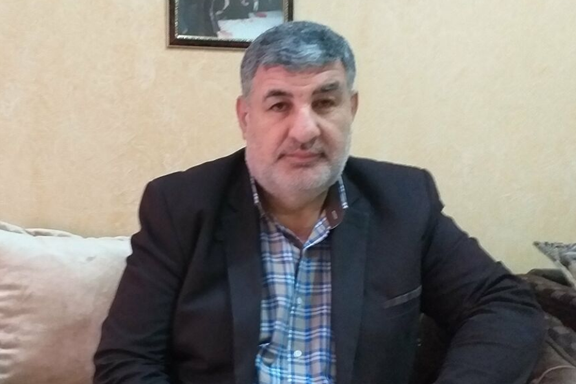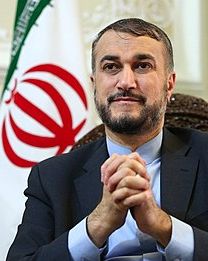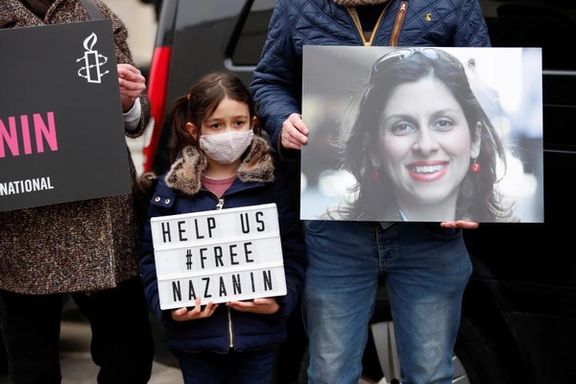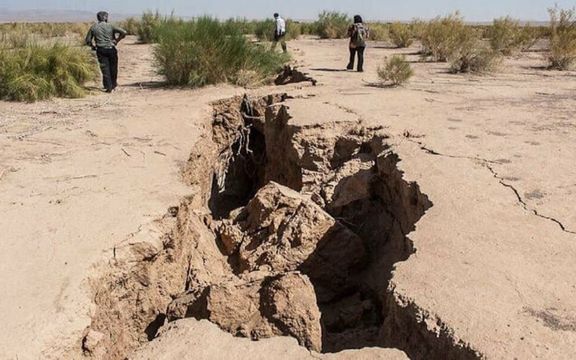Syria Blames Israel For Killing Of Key Intelligence Asset

Syrian government-controlled media has blamed Israel for the assassination of Midhat as-Saleh a key intelligence asset living on the Golan Heights.

Syrian government-controlled media has blamed Israel for the assassination of Midhat as-Saleh a key intelligence asset living on the Golan Heights.
Syrian media reported Saturday evening that as-Saleh was gunned down as he was near his home in the Golan Heights overlooking Israeli territory. It is not clear if he was shot by assailants, a sniper or from an aircraft.
As-Saleh, who was originally from the Golan Heights, served many years in an Israeli prison on security charges and then fled back to Syria where he became a member of the Assad-controlled parliament. But he is said to have been a top intelligence operator that was also working with Iran in Syria.
Although Israel has made no comments about the killing, it has repeatedly said in the past that it will not allow Iran to establish bases near its northern borders. Hundreds of Israeli airstrikes have hit Iran-linked targets across Syria since 2017.
He is said to have been in charge of intelligence gathering in the Golan Heights, using non-Jewish Arabs and Druze as spies in Israel.

An ex-Iranian military officer has told Iran International TV that Iranian intelligence used a ‘honey trap’ in a plot to render him from Turkey in September.
The former officer was named as Mehrdad Abdarbashi, a major and air-force helicopter pilot who had been living as an asylum-seeker in Van, eastern Turkey.
Speaking to Iran International via video-link Saturday, Abdarbashi said a woman working for Iranian intelligence contacted him pretending she wanted to learn about foreign currency exchange.
Abdarbashi said he always alerted Turkish intelligence when anyone contacted him and they had bugged the woman’s cell phone and discovered her contact with the Iranian security forces. He said he did not know which intelligence body, the intelligence ministry or the Revolutionary Guards intelligence organization, had sent the "swallow,” as Iranians usually refer to women used to entrap men.
Turkish intelligence tapped her cellphone and found out what was going on.
"Her plan was to lure me to the city's outskirts under some pretext so that they could capture me and take me back to Iran, but I did not consent to go,” Abdarbashi told Iran International.“The Turkish intelligence was well aware of everything. They told me to accept her invitation to dinner [on the night of the operation] and promised to protect me so I accepted.”
Turkish intelligence knew, said Abdarbashi, that Iranian agents had given drugs to the woman to lace his dinner so they could remove him from her home when he fell unconscious, pretending they were taking him to a hospital.
Ankara on Thursday revealed that its National Intelligence Organization (MIT) and police had arrested an Iranian − whom they said was an intelligence operative − and seven Turks September 24 over a plot to abduct an ex-Iranian military officer in Van and render him to Iran but did not give the full name of the alleged victim.
Speaking to Turkey's Türkiye newspaper Saturday, Abdarbashi said he had fled Iran and sought asylum after refusing a mission to Syria.
"I am in a safe place now but obviously my life is still in danger after that foiled [abduction] attempt,” he told Iran International, appealing for help from human rights and international organizations.
In 2019 a honey-trap was allegedly used to Ruhollah Zam, who ran a social-media channel on Telegram, to Iraq where he was abducted by Iranian agents. Zam was executed in December 2020 after confessions aired on state television.

Iran’s foreign minister, Hossein Amir-Abdollahian on Saturday expressed concern over terror attacks and the growth of the Islamic State group in Afghanistan.
In a meeting with Peter Launsky, Secretary-General at the Austrian Federal Ministry for European and International Affairs, Amir-Abdollahian condemned “recent terrorist operations” in Afghanistan and characterized “the growth of the Islamic State and Takfiri groups” in that country as “dangerous”.
Launsky also condemned the attacks and said that Iran and Austria share concerns over the Islamic State group.
ISNA news website in Tehran reported that Launsky visited Iran to hold the fifth round of bilateral political discussions with Amir-Abdollahian, who praised “long-standing” relations with Austria, thanked for Vienna’s donation of Covid vaccines and called for more cooperation against the pandemic.
Launsky also expressed hope that with the participation of all sides the 2015 Iran nuclear deal (JCPOA) can be revived.
Vienna was the venue of multi-lateral talks from April to June aimed at restoring the JCPOA. Iran stopped participating in the talks that have been suspended. Western countries have been urging Tehran to return to negotiations.

Turkish media have revealed the identity of an Iranian military officer who was the target of a foiled abduction by Tehran’s security services in September.
Türkiye, a right-wing conservative newspaper in Turkey reported on Saturday that the individual is a military pilot named Mehrdad Abdarbashi. Turkish intelligence, which revealed that a plot was foiled in September and several people detained, had named the target with his initials, M.A.
Turkey's official news agency Anadolu (Anatolia) reportedthat the country's National Intelligence Organization (MIT) and police had arrested an Iranian and seven Turks in Van, a city in south-east Turkey on September 24.
Abdarbashi told Türkiye that after using excuses not to be sent for a mission to Syria he decided to flee Iran. He told the newspaper that a female agent of Iranian intelligence invited him to his house, and he alerted Turkish authorities. After she drugged him and others were preparing to abduct him, Turkish agents raided the house.
Iranian intelligence has killed or abducted and rendered hundreds of dissidents and opposition activists abroad in the past 40 years.

An appeal court in Iran has upheld the verdict and one-year prison sentence of British-Iranian citizen Nazanin Zaghari-Ratcliffe, held on ambiguous charges.
The project manager for the Thomson-Reuters Foundation has also been barred from leaving Iran for a year, Hojjat Kermani, Zaghari-Ratcliffe's attorney, told Emtedad news Saturday.
In March Zaghari-Ratcliffe completed a previous five-year sentence, with eight months in solitary confinement, but a second trial convicted her of further charges, which related to
a protest at the Iranian embassy in London in 2009, which was judged punishable under the Iranian Penal Code.
“It seems that every time we dare to hope that Nazanin might soon be free, there is another dreadful setback that puts freedom out of sight," Zaghari-Ratcliffe's member of parliament in Britain Tulip Siddiq tweeted Saturday. "She could now be returned to prison at any time.”
Zaghari-Ratcliffe was arrested in April 2016 while visiting her family in Iran and convicted on espionage charges without due process of law.
Security charges in Iran are tried in closed-door courts, usually with limited representation. Her husband Richard Ratcliffe has repeatedly alleged that that Iran has taken his wife as a bargaining chip to encourage the British government to repay £400 million ($550 million) owed to Iran for Chieftain tanks that Tehran paid for in the 1970s but never received.
In September 2020, United Kingdom Defence Secretary Ben Wallace acknowledged the debt in a letter to lawyers representing Zaghari-Ratcliffe and relatives of ,dual nationals held in Iran. Wallace said he was seeking to make arrangements for repaying it.
“Iran conducts its diplomatic business through hostage-taking, in part because it is cost-free,” Richard Ratcliffe was quoted by the Guardian newspaper as saying on September 19. “British citizens will not be protected from hostage-taking by words and soundbites, but by actions that cause the perpetrators to reassess their calculations and consider the personal costs – for their role in what is a serial organized crime,”
Zaghari-Ratcliffe has been under house arrest at her parents' house in Tehran since March 2020 when she was given furlough from prison due to the Covid pandemic. Two forensic specialists produced a report in February 2021 after examining Zaghari-Ratcliffe by video-link that she suffered from post-traumatic stress disorder, depression, and obsessive-compulsive disorder due to her treatment in prison, house arrest, uncertainty, and separation from her family.

An expert in Iran has warned that the country has less than ten years to deal with dangerous land subsidence because of over-extraction of ground water.
Reports and images last week showed that international airport and historic buildings in Esfahan are sustaining damage from sinking land, as a result of over-reliance on ground water for agriculture amid recurring droughts.
Ali Baytollahi, an expert on roads and buildings, told Tejarat News that most plains in Iran are sinking and the problem is worse in Esfahan.
Land subsidence is not limited to Esfahan and its surrounding plain. In many other areas in Iran cracks and huge hollows that resemble meteor craters have appeared in the ground in recent years. Ali Saberi, a geologist told local media recently that one million hectares of land in the country is affected by subsidence and the main cause is unlimited extraction of ground water.
Alireza Shahidi, head of Iran’s Geological Organization said earlier this year that land subsidence is a “disaster” and a “silent earthquake” that can lead to political and security crises.